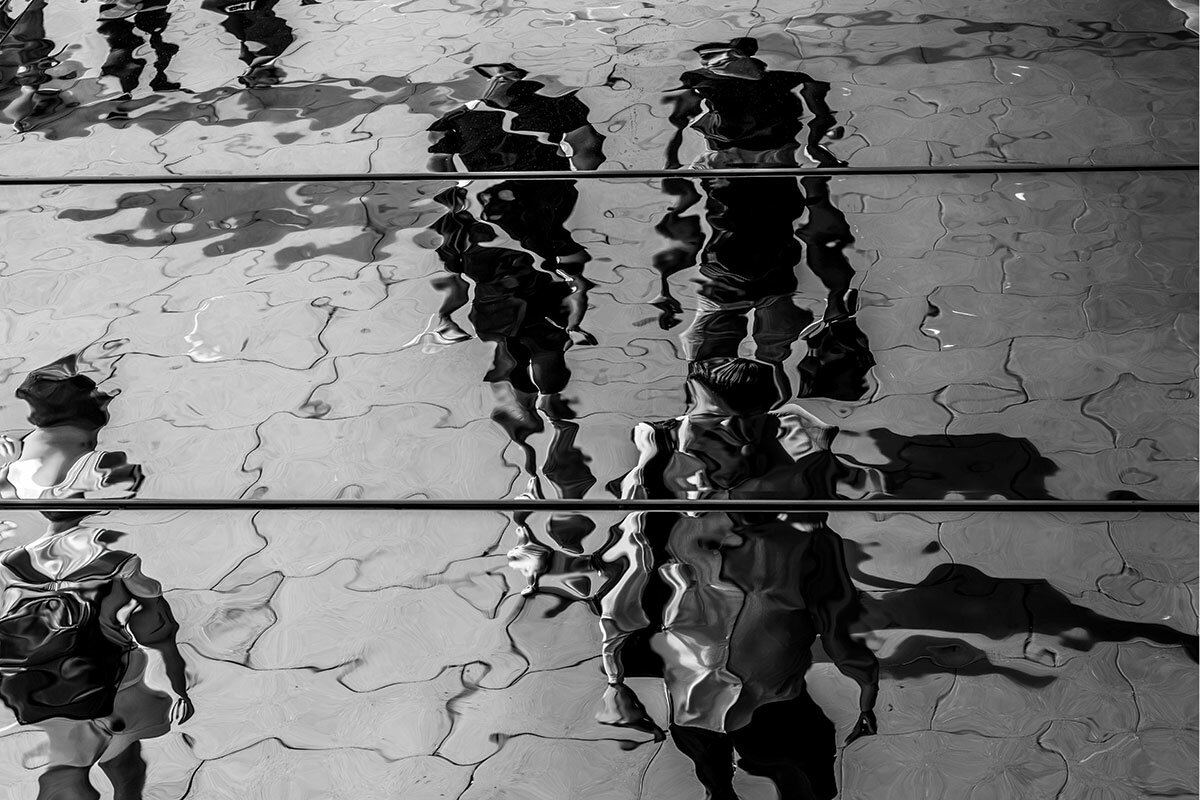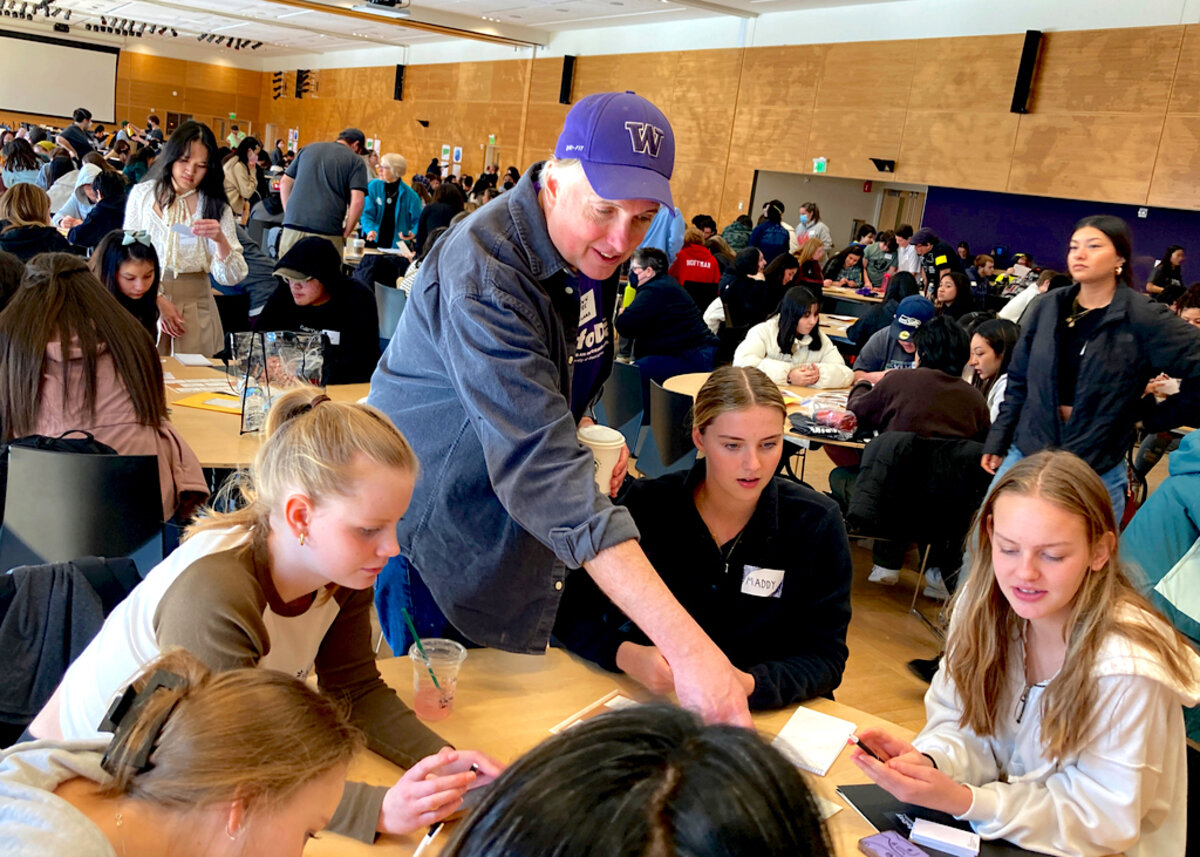Perspective matters, so it’s useful to step back from the daily news flow and assess how much progress we have, or have not, made.

Why is Christian Science in our name?
Our name is about honesty. The Monitor is owned by The Christian Science Church, and we’ve always been transparent about that.
The Church publishes the Monitor because it sees good journalism as vital to progress in the world. Since 1908, we’ve aimed “to injure no man, but to bless all mankind,” as our founder, Mary Baker Eddy, put it.
Here, you’ll find award-winning journalism not driven by commercial influences – a news organization that takes seriously its mission to uplift the world by seeking solutions and finding reasons for credible hope.
Explore values journalism About usMonitor Daily Podcast
- Follow us:
- Apple Podcasts
- Spotify
- RSS Feed
- Download
 Mark Sappenfield
Mark Sappenfield
We’re back, and we have a small New Year’s gift. We’re adding news briefs to The Christian Science Monitor Daily. The idea is (we hope) obvious, and something many readers have said they’ve wanted. After our lead story, you’ll see a short list of today’s top news.
If you want to read the full briefs, which are taken from wire services, click on the link below the bulleted list. That takes you to our news briefs page, with all the briefs from recent days as well as links to Monitor stories that offer added depth. Please let us know what you think at editor@csmonitor.com.
Already a subscriber? Log in
Help fund Monitor journalism for $11/ month
Monitor journalism changes lives because we open that too-small box that most people think they live in. We believe news can and should expand a sense of identity and possibility beyond narrow conventional expectations.
Our work isn't possible without your support.
Today’s stories
And why we wrote them
A deeper look
( 15 min. read )
Today’s news briefs
• Major Israeli Supreme Court ruling: Israel’s Supreme Court strikes down a key component of Prime Minister Benjamin Netanyahu’s judicial overhaul.
• Top Hamas official killed: A founder of Hamas’ military wing is killed in an explosion in a suburb of the Lebanese capital, Beirut. News reports say the strike came from an Israeli drone.
• Harvard president resigns: Harvard University President Claudine Gay resigns amid criticism over testimony at a congressional hearing. She was unable to say unequivocally that calls on campus for the genocide of Jews would violate the school’s conduct policy.
• Nobel Prize winner sentenced to jail: A Bangladeshi court sentences Muhammad Yunus, who pioneered the concept of microloans, to six months in jail. Supporters say the government is attempting to discredit him.
• Japan earthquakes: A series of powerful earthquakes hits western Japan. Prompt public warnings appear to have kept at least some of the damage under control.
( 5 min. read )
In wartime Gaza, phone and internet service has been besieged. Better-equipped journalists are having to balance their professional duties with helping people cope.
( 6 min. read )
In a cultural shift, younger Americans no longer view alcohol as a status symbol of adulthood. Many are drinking less, or not at all.
( 4 min. read )
Poetry aboard U.S. aircraft carriers has been derided as evidence of a “too woke” Navy. Sailors disagree and keep up a New Year’s Day tradition by writing logbook entries in verse.
( 3 min. read )
In an increasingly digital age, nostalgic throwbacks – like paper calendars – offer a grounding source of comfort and purpose.
The Monitor's View
( 2 min. read )
The ever-more sophisticated forms of digital disinformation have set governments scrambling to protect two tenets of democracy that seem increasingly at odds with each other: fair elections and freedom of speech. Yet behind the debates over how or whether to regulate the modern public square, a simpler solution has quietly advanced.
This week California becomes the fourth U.S. state to require its public schools to teach digital literacy from kindergarten through high school. It follows New Jersey, Delaware, and Texas, which have all taken similar steps. More than a dozen other states are moving in the same direction.
The purpose of these measures, as the California law states, is to build “critical thinking” and “strengthen digital citizenship.” That offers a cue at a time of heightened concern for the integrity of upcoming elections, from Taiwan to the United States. The laws are an acknowledgment that the solution to digital dishonesty ultimately resides in individual reason and self-government – qualities that are inherent in everyone.
Digital literacy “refers to the knowledge, skills and attitudes that allow children to be both safe and empowered in an increasingly digital world,” according to UNICEF. Rather than treating it as a unique subject, the California law requires educators to fold it into everything they teach, from math to literature.
That approach draws on experience in more than 50 countries as diverse as Finland and Uganda. It taps the distinct ways that different disciplines teach students how to gather and analyze information. In the U.S., the movement toward digital literacy in education is one of the few policy fields that garner broad consensus across red and blue states.
One reason is the emphasis on safety. Digital literacy teaches children from an early age to start recognizing potentially harmful information and question the veracity of sources. A Stanford study this past year found that after just six 50-minute lessons, high school students were twice as likely to spot suspicious websites.
“This law isn’t about teaching kids that any specific idea is true or false, rather it’s about helping them learn how to research, evaluate, and understand the information” they encounter online, said New Jersey state Sen. Michael Testa about the law his state adopted last year.
What’s good for the health and safety of individuals, however, has a civic equivalent. Good digital citizenship, says Alice Huguet, an education researcher at the Rand Corp., means “engaging in civil dialogue.” It includes respecting digital privacy and sharing information responsibly, she recently told The Guardian. The education reforms in California and other states may end up showing that when people are able to discern digital dishonesty, they may also be less likely to distribute it.
A Christian Science Perspective
Each weekday, the Monitor includes one clearly labeled religious article offering spiritual insight on contemporary issues, including the news. The publication – in its various forms – is produced for anyone who cares about the progress of the human endeavor around the world and seeks news reported with compassion, intelligence, and an essentially constructive lens. For many, that caring has religious roots. For many, it does not. The Monitor has always embraced both audiences. The Monitor is owned by a church – The First Church of Christ, Scientist, in Boston – whose founder was concerned with both the state of the world and the quality of available news.
( 3 min. read )
As we head into a new year, we can let God’s promise of newness inspire progress and healing – and continue this all year.
Viewfinder

A look ahead
Thank you for joining us today. Tomorrow we’ll look at legal attempts to keep Donald Trump off the 2024 presidential ballot in several states, with Maine now following Colorado. What originally looked like a long shot has picked up momentum, but will the result be any different?
And please send us any feedback you have about our new news briefs. You can email me at editor@csmonitor.com.








